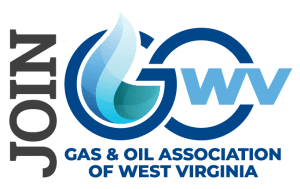Much of the U.S. is experiencing extreme heat this summer and West Virginia is no different. With temperatures regularly nearing 100°F, access to energy is vitally important, and our homegrown natural gas resources can deliver the reliable power needed to keep the AC running and the electricity on.
The North American Electric Reliability Corp. (NERC) recently warned families and businesses across the country are at high risk of power outages this summer, with operators turning to natural gas’ flexible generating capacity to maintain a reliable grid.
- PJM—our regional grid operator—has already upped natural gas output by 6% in preparation for peak loads, Reuters
- However, PJM forecasts the greatest challenge to future grid reliability is the retirement of power facilities without corresponding replacement.
Why It Matters: The abnormally hot summer will exacerbate the strain on regional power grids, threatening to raise home cooling costs nationwide.
- West Virginia’s cooling costs are predicted to spike by up to 4%, compared to 2023– among the highest in the nation.
Turning to modern, highly efficient combined cycle natural gas generators to feed WV electricity needs will secure a more resilient grid locally and keep consumer costs down, but it’ll also make a significant impact on our emissions profile.
- 61% of America’s carbon emission reductions since 2005 were driven by natural gas fuel switching, according to the S. EIA, which is much more than the emissions savings from zero-carbon generation like wind and solar.
- More, the facilities can drive millions of dollars in capital investment and support thousands of construction trades jobs – all while generating enough electricity to power ~750,000 homes.
- Direct access to clean, reliable and low-cost energy in our region also attracts manufacturing and other downstream industries. This further incentivizes growth as companies look for reliable and affordable power to create jobs.
Yes, But: Federal policies forcing the electrification of everything (from the cars we drive to the stoves we use to cook) and the early retirement of baseload generating facilities, mixed with WV’s razor thin use of natural gas for in-state generation, undermines the potential to make real progress to grid reliability as well as the environment.
- Consider, WV is America’s #4 largest natural gas producer, but we use less than 5% of that for our own electricity generation.
- “While renewables can and will continue to play an important role in our energy mix, their weather-dependent nature means that we will continue to need reliable, dispatchable energy to ensure grid reliability for years to come,” Senator Shelley Moore Capito and Congressman Troy Balderson wrote in The Hill.
The Bottom Line: West Virginia has the natural resources, technical expertise and workforce capabilities to expand our electric generating capacity significantly and support U.S. energy security. It’s critical we advance policies that put these domestic energy advantages first because, especially when responding to extreme weather, natural gas is the proven solution to keeping West Virginians safe and cool all summer long.

